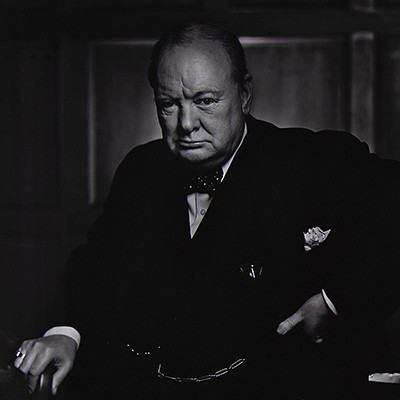Albert Einstein Typed Letter Signed Seeking Support for a Jewish Academy, Weeks Before Hitler's Rise to Power
Two ways to bid:
- Leave a max absentee bid and the platform will bid on your behalf up to your maximum bid during the live auction.
- Bid live during the auction and your bids will be submitted real-time to the auctioneer.
Bid Increments
| Price | Bid Increment |
|---|---|
| $0 | $5 |
| $50 | $10 |
| $200 | $25 |
| $500 | $50 |
About Auction
Feb 22, 2024
RR Auction's first-ever February installment of its Remarkable Rarities series brings some 50+ pieces of history to the auction block, representing the most elusive and extraordinary items offered all year. RR Auction support@rrauction.com
- Lot Description
TLS in German, signed “A. Einstein,” one page, 8.5 x 11.25, December 8, 1932. Letter to Georg Jacobovits, a Jewish builder in Berlin, seeking financial support for a Jewish academy just weeks before Hitler's rise to power as Germany's chancellor. In full (translated): "The Academy for the Science of Judaism is in dire straits. They had undertaken the task of obtaining contributions from private persons and from the Jewish community, in order for Judaism to take on the tasks supported by state academies elsewhere. They gave young Jewish scholars the opportunity to work scientifically, thus providing them with support during their first and most difficult years, up to employment or appointment. With these young scientists they completed large scale collaborative works. Publications from all fields of science bear witness to their achievements and have made their name widely known. This precious institution, the only one of its kind in the world, is on the verge of collapse. The current emergency has long since forced even greater restrictions, and today the number of people employed by the Academy and their salaries are so reduced, that any further diminution would bring about complete dissolution. But this would cause irreparable damage to the spiritual representation of Judaism. What was created here in an exemplary way could, once destroyed, hardly be rebuilt. A number of the most valuable people would, all of a sudden, face no employment opportunities. I ask, therefore, all those who are able to do what they can for this valuable institution." In fine condition, with fold separations expertly repaired on the reverse.
Although Einstein was not particularly religious, he came to identify himself more closely with his Jewish heritage as the years passed. In 'Einstein and the Generations of Science,' Lewis S. Feuer observes that while living in Berlin during the 1930s, Einstein's 'concern for Zionist activities grew, a response to the rising hatreds that he saw festering in Europe...A reconstructed atheist, Einstein agreed to serve as chairman of the Management Committee of the Akademie für die Wissenschaft des Judentums, a society dedicated to the cultivation of Jewish learning. Einstein indeed came to think that the hatred for the intellect was the underlying motive of anti-Semites: 'Hence the hatred of the Jews by those who have reason to shun popular enlightenment. More than anything else in the world, they fear the influence of men of intellectual independence. I see in this the essential cause for the savage hatred of Jews raging in present-day Germany.'' The Academy had been founded in Berlin in 1919 as a secular research institute, at the instigation of Franz Rosenzweig, under the direction of German historian Eugen Taubler.
In writing this letter soliciting contributions to the Academy, Einstein recognizes its influential role in furthering Jewish scientists, as well as its precarious position in a time of social and economic tumult. Some seven weeks later, on January 30, 1933, Adolf Hitler, the leader of the Nazi Party, would be named chancellor of Germany.
Einstein, like so many Jewish academics of his time, was forced into exile in 1933 due to anti-Semitic persecution in Nazi Germany. He immigrated to the U.S. and was attached to Princeton's Institute for Advanced Study for the remainder of his life, becoming the symbol and leader of his cohort of refugee scholars. In the face of persecution, Einstein helped whenever he could and, in addition to assisting many fellow Jews flee Germany, he helped found and raise funds for Hebrew University and was offered (but declined) the Presidency of Israel. - Shipping Info
-
Bidder is liable for shipping and handling and providing accurate information as to shipping or delivery locations and arranging for such. RR Auction is unable to combine purchases from other auctions or affiliates into one package for shipping purposes. Lots won will be shipped in a commercially reasonable time after payment in good funds for the merchandise and the shipping fees are received or credit extended, except when third-party shipment occurs. Bidder agrees that service and handling charges related to shipping items which are not pre-paid may be charged to a credit card on file with RR Auction. Successful international Bidders shall provide written shipping instructions, including specified Customs declarations, to RR Auction for any lots to be delivered outside of the United States. NOTE: Declaration value shall be the item’(s) hammer price and RR Auction shall use the correct harmonized code for the lot. Domestic Bidders on lots designated for third-party shipment must designate the common carrier, accept risk of loss, and prepay shipping costs.
-
- Buyer's Premium



 EUR
EUR CAD
CAD AUD
AUD GBP
GBP MXN
MXN HKD
HKD CNY
CNY MYR
MYR SEK
SEK SGD
SGD CHF
CHF THB
THB




